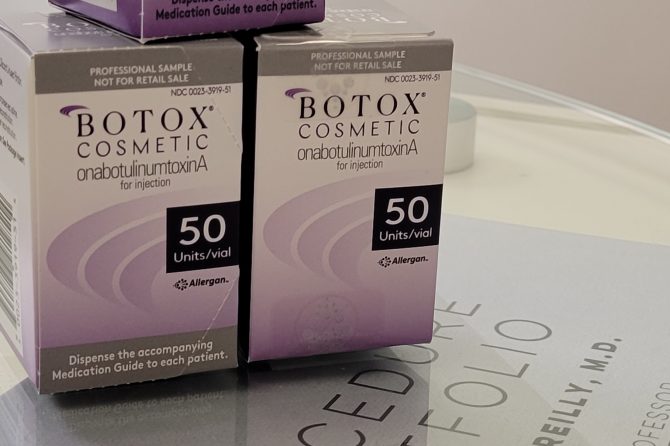
Is Botox Good for Mental Health?
A new study found a surprising benefit.
KEY POINTS
- Anxiety can be a debilitating disorder for those affected.
- A study from the University of California San Diego found that anxiety was 22 to 72 percent lower in patients treated with Botox.
- The facial feedback hypothesis may help explain how Botox can lead to decreased ratings of anxiety.
Onabotulinum A (Botox) is a neuromodulator, which is a class of medications that modulate nerve signal input into muscles, reducing or blocking muscle activity. In the world of cosmetics, Botox is commonly injected into facial muscles underneath wrinkles, which relaxes those muscles and results in the smoothing of the overlying skin. While this treatment can help make one’s skin appear more youthful, studies have shown it can also affect the ability to express and experience emotions. In order to examine the impact Botox injections may have on anxiety, it is important to have a basic understanding of anxiety disorders, review the data about the relationship between Botox and anxiety, and consider potential explanations for how the two may be related.
According to the National Comorbidity Survey Replication, anxiety disorders are the most common class of psychiatric disorders. The survey found that 32 percent of the U.S. population is negatively affected by anxiety at some point in their lives. While occasional anxiety is an expected part of life, clinical anxiety involves more than temporary worry or fear. There are several types of anxiety disorders including generalized anxiety disorder, panic disorder, and various phobia-related disorders. For those with an anxiety disorder, the anxiety does not go away, can get worse over time and can interfere with daily activities such as job performance, school work, and relationships. Current treatments for anxiety disorders include psychotherapy, medication, or both. Unfortunately, treatments can be ineffective for up to one-third of sufferers.
A recent study out of the Skaggs School of Pharmacy and Pharmaceutical Sciences at University of California San Diego analyzed the FDA’s Adverse Effect Reporting system database. This included nearly 40,000 people who reported the effects of Botox treatment for a variety of reasons. What they found was that the reported anxiety risk was 22 to 72 percent lower in Botox-treated patients. This included patients who received injections into facial muscles for cosmetic use and facial/head muscles for the treatment of migraine-related headaches. The same research team published a separate study that found that people who received Botox injections reported significantly less depression than patients undergoing different treatments for the same condition. Understanding how Botox can affect overall wellness and these mental health conditions may impact future treatment paradigms.
The facial feedback hypothesis is based on the idea that facial expression and emotional experience are linked. Specifically, sensory feedback from the action of facial muscles appears to influence an individual’s emotional experience. Take for example the action of elevating your cheeks, which can make you happier, or the action of furrowing your brows, which can make you angrier. A study in 2014 by Kim et al. using functional MRI found that angry facial expressions increase the activity of the amygdala, which is the region of the brain primarily associated with emotional processing. However, when the corrugator muscles (which furrow the brow) are paralyzed by Botox, there was a decrease in amygdalar activity. These are similar to previous findings showing that meditation can result in decreased activity in the amygdala. Taken together, this suggests that Botox injections may block the emotional processing feedback loop to modulate psychological experience.
While there is no single treatment that works for everyone, it is important to consider the potential benefits that Botox and other neuromodulators may have on the holistic treatment of those suffering from anxiety and/or depression. Patients should speak with their mental health providers first to explore whether this may be an option in their specific circumstances. If a trial is considered, it is best to seek care from an experienced provider adept in neuromodulator injections and with whom you can have an open conversation about your specific goals and response to treatment.
Leave a reply
